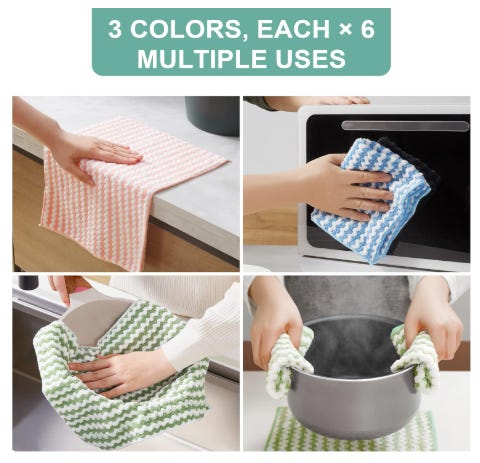Marketing has changed its message due to COVID-19

In any marketing commercial worth its weight, the goal is to lure customers into a particular business or make the sale. But during the coronavirus disease 2019 (COVID-19) outbreak that has infected 213,144 people in the United States and 900,306 worldwide, the messaging has changed across multiple industries—restaurants, retail, auto sales, ride-sharing services and beyond.
Bonding With the Customer
“We know you might not be thinking of Burger King right now, but we’re thinking about you.” That’s the opening to the latest commercial from the popular fast food chain. The “minimum contact” customer service demonstration shows a cashier wearing plastic gloves. Burger King clearly isn’t denying that they know customers have become hesitant to visit fast-food restaurants these days, reminding them that they can complete their orders via website or mobile app to decrease hand-to-hand purchasing at drive-up windows. Customers even get two free kids’ meals for doing so.
And as strange as this would usually seem, Uber’s latest ad isn’t hiding from the push for social isolation. Click on YouTube, and you may see a video opener that says: “This video isn’t moving. Neither should you.” Although the complete point of ride-sharing is to get people to travel in a car with another person, or even multiple people, the $60 billion company is now telling riders, “If you can, stay home. If you must travel, Uber is here for you, but you must follow these tips.” Those tips include customers washing their hands before and after the ride, and not sitting on the passenger side of the Uber driver’s car. Additionally, Uber confirmed that it is offering 10 million free rides and food deliveries to healthcare workers, seniors, and people in need.
Even companies selling cars instead of offering rides have changed their tune. Hyundai’s newest commercial tells potential auto buyers about its Assurance Job Loss Protection initiative, which promises up to six months’ worth of payments for drivers who have experienced job loss due to COVID-19. Ford is also promoting a relief program (three months deferred, three months paid) and home delivery for customers purchasing a car during the current outbreak (minus Pennsylvania). Watch TV long enough, and viewers will see a health-conscious pattern from companies such as Olive Garden, Kentucky Fried Chicken and even Clorox.
ADVERTISEMENT ~ Amazon
(As an Amazon Affiliate, I earn a percentage for every purchase with my referral links.)
Keeping Sales Above Water With Increasing Closures
While apparel companies have mainly had to close their doors and rely on online purchases for additional income, “essential businesses” are doing their best to remind customers they’re still around. But would it make sense for non-essential businesses to keep on advertising even though employees are being forced to stay at home and socially isolate? Yes and no.
The COVID-19 outbreak didn’t stop Kohl’s from releasing its newest Elizabeth and James collection, designed by actresses Ashley Olsen and Mary-Kate Olsen. But even after all stores were closed on March 19, Kohl’s website confirms it has store pick-up options for online orders.
Old Navy is still trying to gain sales, with the help of newer videos from actor Neil Patrick Harris scurrying around to find out what’s better than fleece. Although their stores have been closed as of March 19, the chain has gone as far as making everything on the entire site 50% off. That includes GAP and Banana Republic.
Not surprisingly, Bath & Body Works — which also confirms its closings on the homepage — is completely sold out of hand sanitizer, as has been common in “essential” grocery stores and retail companies. But the retailer is still taking online orders.
And alcohol companies such as Budweiser are using their latest commercials to pay homage to everyone from delivery people to doctors, regardless of the noticeable boost in liquor sales (20%) and distillery companies during social isolation.
Should Retailers Opt For ‘Business as Usual’ Messaging?
Interestingly, unlike almost all retail and department store websites, JC Penney is one of few showing off its spring trends and lookbooks — without any mention of COVID-19 on its homepage, just percentage-off codes. All of its stores closed as of March 18 though.
For essential companies, it would arguably be bad business to ignore customer concerns regarding buying products from their locations. But for non-essential companies, would it make more sense to release commercials with “business as usual” themes in a time when three broadcast networking evening newscasts (Fox News, CNN, MSNBC) are seeing their highest viewership in more than 15 years? It depends on who is asked.
Health care was already the top stressor (43%) for Americans, so it’s possible that maybe some customers would appreciate a “normal” moment instead of another advertisement reminding them of what the news is already doing 24/7. On the other hand, companies like Hyundai and Ford are fully aware that “essential” or not, they know how tough it would be for customers to do business with them without the discounts, delayed payments and/or drop-off options now needed during increasing layoffs and job closings nationwide.
With Wall Street suffering the worst quarter since 2008, and as job markets continue to decline, advertising and marketing departments should definitely be reading the room to see how to best connect with customers.
(Note: This post was originally published as an Upwork freelancer for RETHINK Retail.)
Did you enjoy this post? You’re also welcome to check out my Substack columns “Black Girl In a Doggone World,” “BlackTechLogy,” “Homegrown Tales,” “I Do See Color,” “One Black Woman’s Vote” and “Window Shopping” too. Subscribe to this newsletter for the monthly post on the third Thursday.
If you’re not ready to subscribe but want to support my writing, you’re welcome to tip me for this post! I’ll buy a dark hot chocolate on you. Thanks for reading!





